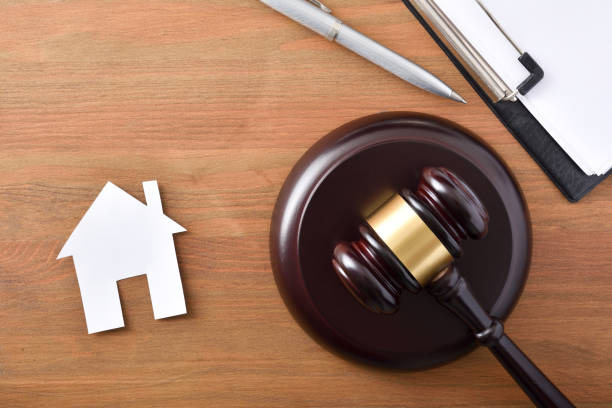The idea that squatters can occupy a property and potentially claim legal rights to it may seem perplexing to many homeowners. This often leads to the question, “why do squatters have more rights than homeowners?” The legal system surrounding squatter rights and adverse possession can be complicated, leaving property owners frustrated and vulnerable. Understanding the dynamics behind these legal principles is crucial for safeguarding property and preventing unwanted occupation.
At the heart of this issue lies the balance between land use, property neglect, and housing accessibility. While homeowners might view squatters as trespassers, the legal framework often protects those who occupy and maintain abandoned properties. The rationale is rooted in preventing urban decay and encouraging productive land use. However, for homeowners, the fear of losing property to squatters can feel unjust, making it essential to explore the origins, implications, and preventive measures tied to squatters’ rights.
Understanding Squatters’ Rights: What Are They?
Squatters’ rights refer to the legal protections afforded to individuals who occupy land or property without the owner’s explicit permission. In many jurisdictions, if a squatter resides on a property for a specified period, they may gain certain legal rights, sometimes even ownership, through adverse possession laws. These rights exist to balance property use, discourage land from being left idle, and ensure housing availability in cases of abandoned properties.
Key factors influencing squatters’ rights include the duration of occupancy, the nature of the squatter’s presence (e.g., open, notorious, and continuous), and the absence of eviction action by the property owner. These principles stem from the belief that land should not remain unused if someone is willing to care for and occupy it.
The Legal Concept of Adverse Possession
Adverse possession is a legal doctrine that allows a squatter to claim ownership of property if they meet specific conditions over a set period. The foundational principle behind adverse possession is that land should be used productively. If a homeowner neglects their property, allowing a squatter to maintain it openly, the squatter may eventually acquire legal ownership.
The criteria for adverse possession typically include:
- Continuous and uninterrupted occupancy – The squatter must occupy the property without significant gaps.
- Open and notorious possession – The occupation must be visible to anyone, including the property owner.
- Hostile claim – Occupation must occur without the owner’s consent.
- Exclusive use – The squatter must demonstrate exclusive control, preventing others, including the owner, from using the property.
- Payment of property taxes – In some jurisdictions, paying taxes on the property strengthens the squatter’s claim.
Adverse possession laws were designed to encourage land development and discourage neglect. However, these same laws can inadvertently disadvantage property owners who fail to monitor their assets.

Why Homeowners Face Legal Challenges with Squatters
Homeowners may struggle to remove squatters due to legal protections that prevent unlawful eviction. In many jurisdictions, even unauthorized occupants must receive formal eviction notices and court hearings before being removed. This ensures due process but can frustrate property owners seeking swift action.
Additionally, the legal framework often favors individuals who demonstrate consistent and responsible use of land, even if they initially entered without permission. This is one reason why it appears squatters have more rights than homeowners, especially when homeowners neglect their properties for extended periods.
Landlords and absentee owners are particularly vulnerable, as vacant properties become targets for squatting. In some cases, squatters may exploit loopholes or slow legal processes, complicating the eviction process further.
Do Squatters Actually Have More Rights than Homeowners?
While the concept of squatters’ rights can seem to outweigh homeowners’ rights, this is not entirely accurate. Squatters must meet stringent legal criteria to claim adverse possession, and the process can take years. Homeowners retain the ultimate authority if they actively manage and monitor their properties.
However, the perception that squatters have more rights often arises when homeowners fail to enforce their property rights or neglect legal procedures for eviction. By staying vigilant and addressing unauthorized occupancy promptly, homeowners can protect their interests.
How Homeowners Can Protect Their Property from Squatters
To prevent squatters from gaining legal rights to a property, homeowners can take proactive measures:
- Regular Inspections – Frequently visit and inspect properties, especially vacant ones.
- Secure the Property – Lock all entrances, install security cameras, and post no-trespassing signs.
- Prompt Eviction – Act immediately upon discovering squatters. File for eviction through legal channels.
- Maintain Property – Pay property taxes and ensure the land remains in use to reduce the risk of adverse possession claims.
- Legal Action – Work with an attorney to understand local property laws and pursue legal action as needed.
Engaging with neighbors and community watch programs can also help monitor properties, reducing the risk of long-term squatting.

Notable Legal Cases Involving Squatters and Homeowners
Numerous legal cases highlight the complexities of squatters’ rights. For example, cases where squatters have occupied abandoned buildings for years and successfully claimed ownership under adverse possession laws demonstrate the importance of property maintenance and legal diligence by homeowners.
One notable case involved a New York homeowner who left his property vacant for over a decade. During this time, a squatter moved in, renovated the home, and paid property taxes. When the original owner attempted to reclaim the property, the court ruled in favor of the squatter under adverse possession laws. Such cases underscore the significance of vigilance and property upkeep.
In contrast, property owners who take swift legal action and engage with law enforcement often succeed in removing squatters before adverse possession claims arise.
Let Marketing Techology Help You
Property disputes involving squatters can be complex and time-consuming, but staying informed is the best defense. Marketing Technology not only provides educational content to keep homeowners updated on evolving legal frameworks but also offers robust SEO and content marketing services. By boosting your online presence and promoting valuable resources, Marketing Techology helps ensure that homeowners remain proactive in protecting their investments and navigating property rights effectively. Contact us now!

Frequently Asked Questions:
1. Can a squatter claim ownership of a property?
Yes, under adverse possession laws, if a squatter meets specific legal criteria over time, they may claim ownership.
2. How long does a squatter have to occupy a property to claim rights?
The time varies by jurisdiction but typically ranges from 5 to 20 years.
3. What should I do if I discover squatters on my property?
Immediately contact local authorities, consult an attorney, and begin formal eviction proceedings.





